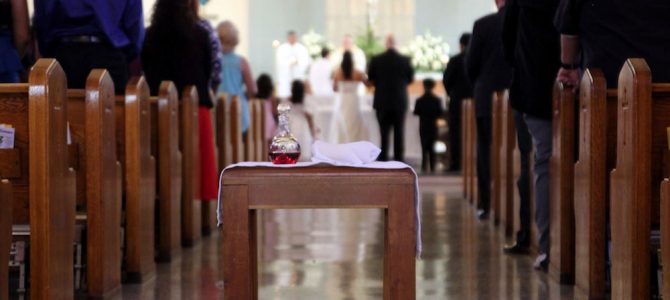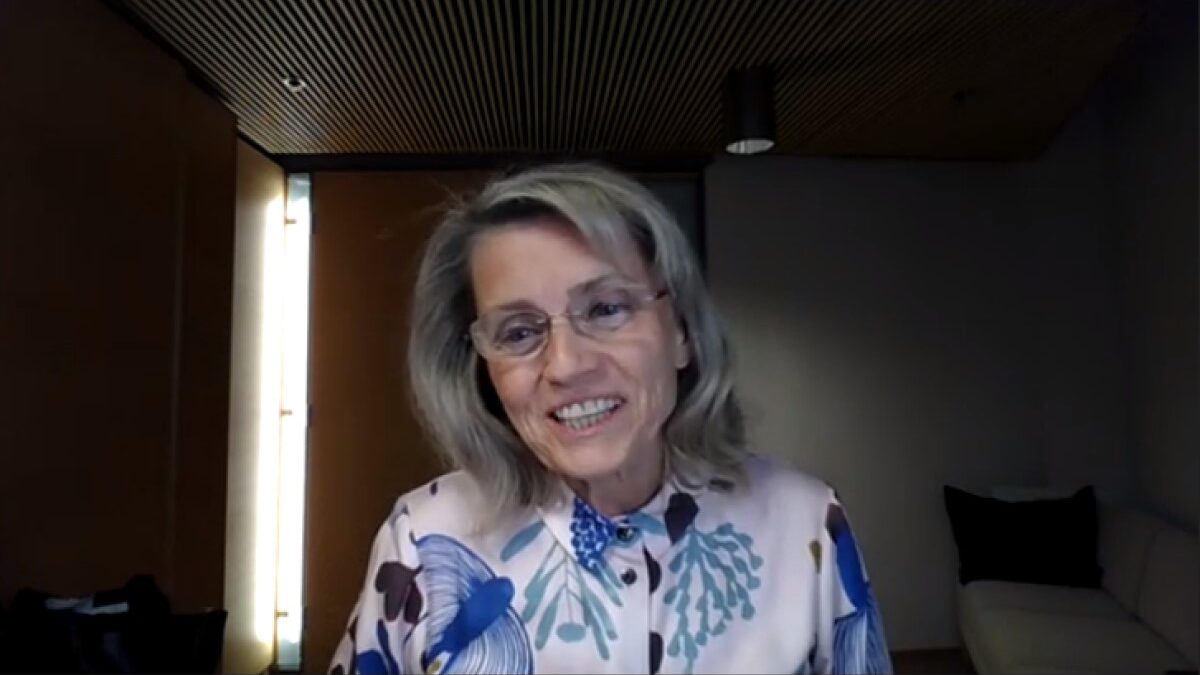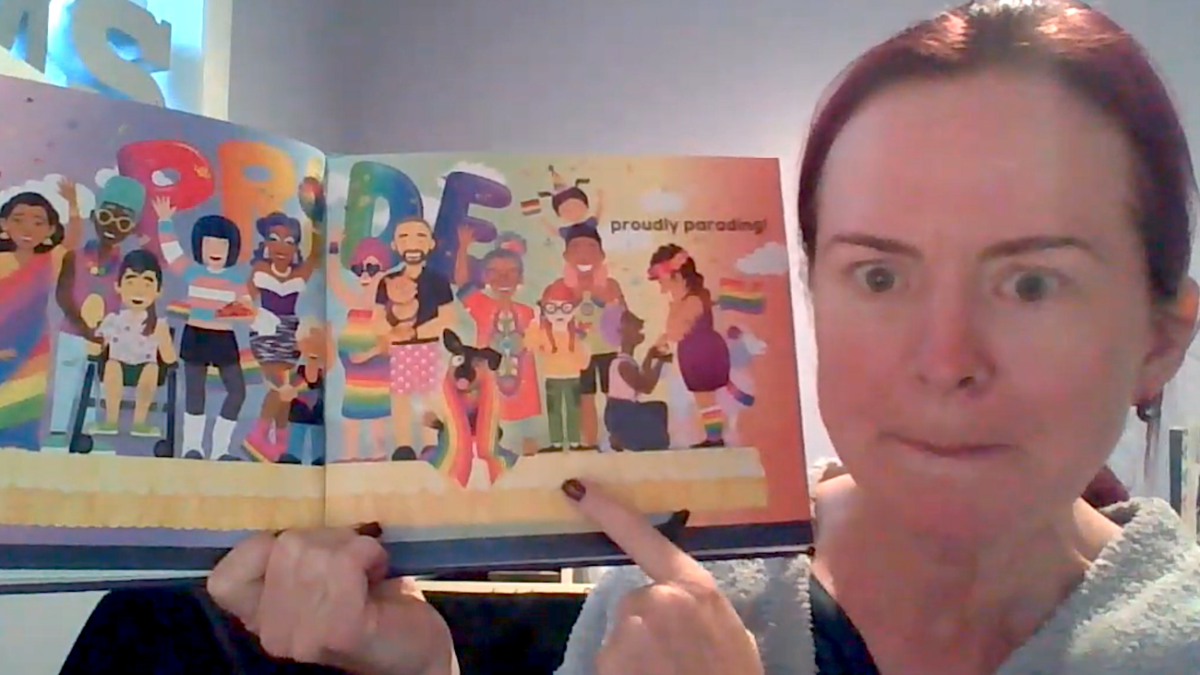
In my school days, we were taught that the national government is limited. The powers of Congress are only those enumerated in the Constitution. The powers of the President and the Executive Branch are only those enumerated. All other powers are reserved to the States and the People.
On May 13, 2016, the U. S. Departments of Education and Justice released joint guidance to local school districts about transgender students. When I saw it, my junior high and high school civics kicked in. How, I wondered, did these two Executive Branch departments of the national government get power over the showers of our schools here in Sidney, Montana?
Where in the Constitution does the national government receive power to rule the local school district, designating who disrobes or showers in the presence of whom? Why isn’t this a matter for our school district trustees, or the Legislature of Montana? Why, under the Ninth Amendment, isn’t this matter in the power of parents?
The joint guidance struck me as the next instance of an accumulating, profound constitutional change relating to limited government, express powers, federalism, the Ninth Amendment, and the Tenth Amendment.
The fact that the guidance had to do with “gender” was not prominent in my concern. The fact that some people’s objections were based on religion was not the red flag. Simple, junior high, secular civics sounded an alert.
Catholics Accused of Using ‘Religious Liberty’ As Code For ‘Discrimination’
Four months later, on September 7, 2016, the U. S. Commission on Civil Rights released a briefing report titled, Peaceful Coexistence: Reconciling Nondiscrimination Principles with Civil Liberties. Martin R. Castro, Chairman of the Commission, said on page 29:
The phrases “religious liberty” and “religious freedom” will stand for nothing except hypocrisy so long as they remain code words for discrimination, intolerance, racism, sexism, homophobia, Islamophobia, Christian supremacy or any form of intolerance.
Religious liberty was never intended to give one religion dominion over other religions, or a veto power over the civil rights and civil liberties of others. However, today, as in the past, religion is being used as both a weapon and a shield by those seeking to deny others equality. In our nation’s past religion has been used to justify slavery and later, Jim Crow laws. We now see “religious liberty” arguments sneaking their way back into our political and constitutional discourse (just like the concept of “state rights”) in an effort to undermine the rights of some Americans.
One example of this supposed sneaking is the affirmation of the sanctity of life by the Roman Catholic Church in its teaching on the Fifth Commandment. This is seen as discriminatory against women. Another example is the Sacrament of Marriage in the Roman Catholic Church. This is seen as discriminating against LGBTQ people.
What lies behind this notion that the Catholic Church is sneaking around? Why is the Catholic Church portrayed as using the terms “religious liberty” and “religious freedom” only as code words for discrimination? Does the Commission really believe that the Catholic Church only lately hit upon the Fifth Commandment and the Sacraments opportunistically for political purposes?
Government Officials Plot against Religious Doctrine
Such historical ignorance is astounding. Whatever might lie behind the sheer calumny against the Catholic Church, this report alerted me that my list of constitutional principles undergoing profound change was incomplete. Some sort of trouble is afoot concerning the First Amendment.
On October 11, 2016, Wikileaks released a third set of emails from the U. S. presidential campaign of Secretary Hillary Clinton. These are part of what has become known as the Podesta emails. The set included the following email to John Podesta and his reply:
This whole controversy with the bishops opposing contraceptive coverage even though 98% of Catholic women (and their conjugal partners) have used contraception has me thinking . . . There needs to be a Catholic Spring, in which Catholics themselves demand the end of a middle ages dictatorship and the beginning of a little democracy and respect for gender equality in the Catholic church. Is contraceptive coverage an issue around which that could happen. The Bishops will undoubtedly continue the fight. Does the Catholic Hospital Association support of the Administration’s new policy, together with “the 98%” create an opportunity?
Of course, this idea may just reveal my total lack of understanding of the Catholic church, the economic power it can bring to bear against nuns and priests who count on it for their maintenance, etc. Even if the idea isn’t crazy, I don’t qualify to be involved and I have not thought at all about how one would “plant the seeds of the revolution,” or who would plant them. Just wondering . . .
Podesta replied,
We created Catholics in Alliance for the Common Good to organize for a moment like this. But I think it lacks the leadership to do so now. Likewise Catholics United. Like most Spring movements, I think this one will have to be bottom up. I’ll discuss with Tara. Kathleen Kennedy Townsend is the other person to consult.
In this exchange, the campaign of a major party candidate for president of the United States discussed infiltrating a church to foment revolution against its governance by bishops, and its central and historic teaching.
Political Parties Work To Infiltrate the Church
The discussion involves the Chairman of the campaign, John Podesta. He includes himself in the “we” that has been working toward a revolutionary Catholic Spring for some years.
Podesta was also Chief of Staff for President Bill Clinton from 1998 to 2001. Would this work to infiltrate a church and foment revolution continue into a Hillary Clinton presidency? Her first public speech after announcing her candidacy for President was the keynote speech to the Women in the World Summit on April 23, 2015. While discussing issues where she and the Catholic bishops disagree, she did say, “Laws have to be backed up with resources and political will, and deep-seated cultural codes, religious beliefs and structural biases have to be changed.” (Beginning at 8:39 in the video.)
What kind of country is this? What are the right words to describe this sort of action by a political party and a presidential campaign? How far are we from a direct impingement on the First Amendment?
It happens that I am not a Roman Catholic. I am a confessional Lutheran, which means that I subscribe unconditionally to the Book of Concord, after which so many things in Lutheranism are called Concordia. As such, I have some profound disagreements with Catholic doctrine and church polity, albeit with many profound and joyous agreements as well. I am a fan of the Augsburg Confession. The Confutation and the Council of Trent? Not so much. The Joint Declaration on the Doctrine of Justification? Not at all.
This Is About All Of Us
But that is beside the point. And your religious disagreements with Catholics are beside the point as well. The First Amendment belongs to us all. If it does not belong to my Catholic friends, neighbors, and fellow citizens, I also am deprived of it. It will be deprived of Jews, Presbyterians, Methodists, Congregationalists, Baptists, Pentecostals, Charismatics, Quakers, Episcopalians and… well, you get the idea.
The attack on the Catholic Church comes from Cultural Marxism. Marxists see Western culture and the Christian religion as obstacles that kept the working class from rising to overthrow capitalism and establish communism during World War I. The same obstacles kept the working class in the rest of Europe from supporting the Bolshevik Revolution in Russia. Therefore, as preparatory steps toward economic Marxism, Cultural Marxism believes it must destroy Western culture and the Christian religion.
Cultural Marxism operates by criticizing every traditional institution, starting with the family. It accuses people who believe in traditional Western culture of being prejudiced, racist, sexist, phobic, hateful, and mentally ill. We see this in the broad program of political correctness smothering our society. Hypocritically, it fails to see itself as Christophobic or anti-Catholic bigotry.
The Catholic Church comes under attack because of its historic and vigorous support of marriage, family, life, and a host of values traditional in Western culture (even while it also criticizes immoral aspects of Western culture). It comes under attack because, as Christian targets go, it is a large one.
On Upholding Religious Liberty, We Are All Catholics
During Russian occupation of East Germany, the Soviets built the Berlin Wall to keep Western culture away from East Berliners. To show solidarity with the people of Berlin, President John F. Kennedy went to the Berlin Wall and said, “Ich bin ein Berliner,” that is, “I am a Berliner.”
Today, Cultural Marxism is turning the so-called “wall of separation” of church and state into a Berlin Wall against the Catholic Church. The wall being built against Roman Catholics by attacks on their religious liberty is being built against us all. The demise of their religious freedom is the death of ours. It is time for each of us to say, “Ich bin ein katholischer,” that is, “I am a Catholic.” Or, perhaps better in Latin, “Ego sum Catholicus.”









